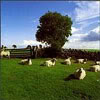- Welcome to Cook'd and Bomb'd.
-
 Scotland abandons 75% 2030...
by Alberon
Scotland abandons 75% 2030...
by Alberon
[Today at 09:53:03 AM] -
 Is this shit?
by Senior Baiano
Is this shit?
by Senior Baiano
[Today at 09:49:38 AM] -
:format(jpeg):mode_rgb():quality(90)/discogs-images/R-4393136-1459115193-8619.jpeg.jpg) Silly little things that mean...
by SteveDave
Silly little things that mean...
by SteveDave
[Today at 09:49:11 AM] -
I have never listened to the... by sevendaughters
[Today at 09:46:42 AM] -
 NFL 2024
by DrGreggles
NFL 2024
by DrGreggles
[Today at 09:46:30 AM] -
6music idiocy AKA I hate change... by Deskbound Cunt
[Today at 09:46:11 AM] -
 Non garden plants (AND TREES)...
by Brian Freeze
Non garden plants (AND TREES)...
by Brian Freeze
[Today at 09:45:27 AM] -
 Live Comedy Performers of...
by Small Man Big Horse
Live Comedy Performers of...
by Small Man Big Horse
[Today at 09:45:11 AM] -
 Laurence Fox loses court case...
by Kankurette
Laurence Fox loses court case...
by Kankurette
[Today at 09:43:40 AM] -
 The Motorsport Thread (Part...
by Ambient Sheep
The Motorsport Thread (Part...
by Ambient Sheep
[Today at 09:42:35 AM]
Members
 Total Members: 17,826
Total Members: 17,826 Latest: skinnylike
Latest: skinnylike
Stats
 Total Posts: 5,584,450
Total Posts: 5,584,450 Total Topics: 106,754
Total Topics: 106,754 Online Today: 1,170
Online Today: 1,170 Online Ever: 3,311
Online Ever: 3,311- (July 08, 2021, 03:14:41 AM)
Users Online
 Users: 100
Users: 100 Guests: 1042
Guests: 1042 Total: 1142
Total: 1142 Gurke and Hare
Gurke and Hare The Always Red Society
The Always Red Society mikeyg27
mikeyg27 famethrowa
famethrowa Marner and Me
Marner and Me Buelligan
Buelligan horse_renoir
horse_renoir MojoJojo
MojoJojo thenoise
thenoise Urinal Cake
Urinal Cake DreadedScotsman
DreadedScotsman Senior Baiano
Senior Baiano Claude the Racecar Driving Rockstar Super Sleuth
Claude the Racecar Driving Rockstar Super Sleuth lebowskibukowski
lebowskibukowski Dayraven
Dayraven Alberon
Alberon Registering to lurk
Registering to lurk Huxleys Babkins
Huxleys Babkins TommyTurnips
TommyTurnips magister
magister Mortimer
Mortimer iamcoop
iamcoop Chairman Yang
Chairman Yang Tread
Tread Moj
Moj dead-ced-dead
dead-ced-dead Hobo With A Shit Pun
Hobo With A Shit Pun Shaxberd
Shaxberd copa
copa matjam13
matjam13 persephone
persephone SteveDave
SteveDave Wezzo
Wezzo Pete23
Pete23 Small Man Big Horse
Small Man Big Horse BeardFaceMan
BeardFaceMan Mobius
Mobius Magnum Valentino
Magnum Valentino sevendaughters
sevendaughters steamed hams
steamed hams Twilkes
Twilkes Simply_The_Bestest
Simply_The_Bestest Stoneage Dinosaurs
Stoneage Dinosaurs Ruben Remus
Ruben Remus oggyraiding
oggyraiding rilk
rilk Mr Vegetables
Mr Vegetables thugler
thugler non capisco
non capisco PowerButchi
PowerButchi Tikwid
Tikwid Deskbound Cunt
Deskbound Cunt Bellalunaesme2
Bellalunaesme2 pupshaw
pupshaw sevenism
sevenism ProvanFan
ProvanFan DrGreggles
DrGreggles gilbertharding
gilbertharding Obel
Obel Bently Sheds
Bently Sheds pancreas
pancreas mippy
mippy Kankurette
Kankurette Tiggles
Tiggles TheDreamIsOver
TheDreamIsOver mattjjh
mattjjh NattyDread 2
NattyDread 2 edwardfog
edwardfog greenman
greenman Mr Farenheit
Mr Farenheit George White
George White MrMealDeal
MrMealDeal ramsobot
ramsobot Dandy21
Dandy21 frajer
frajer spaghetamine
spaghetamine
